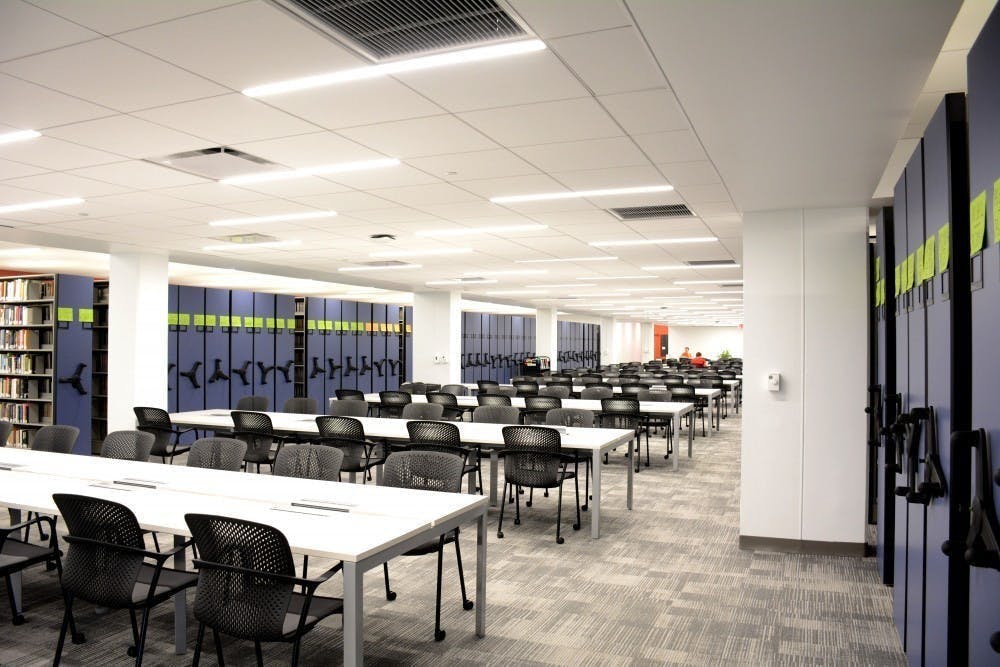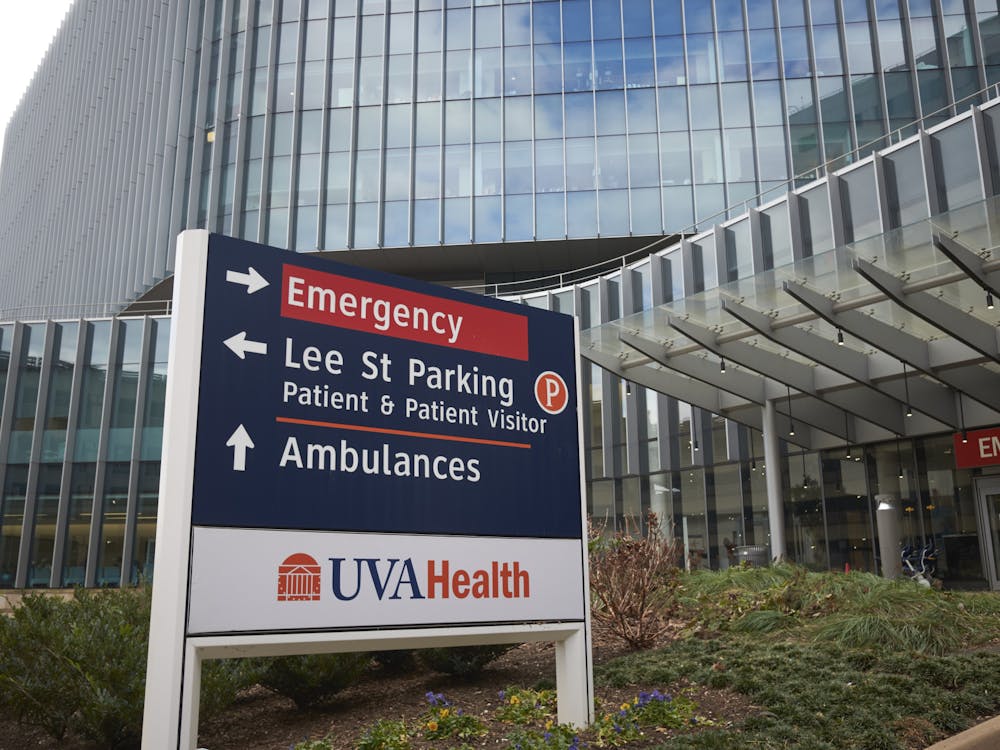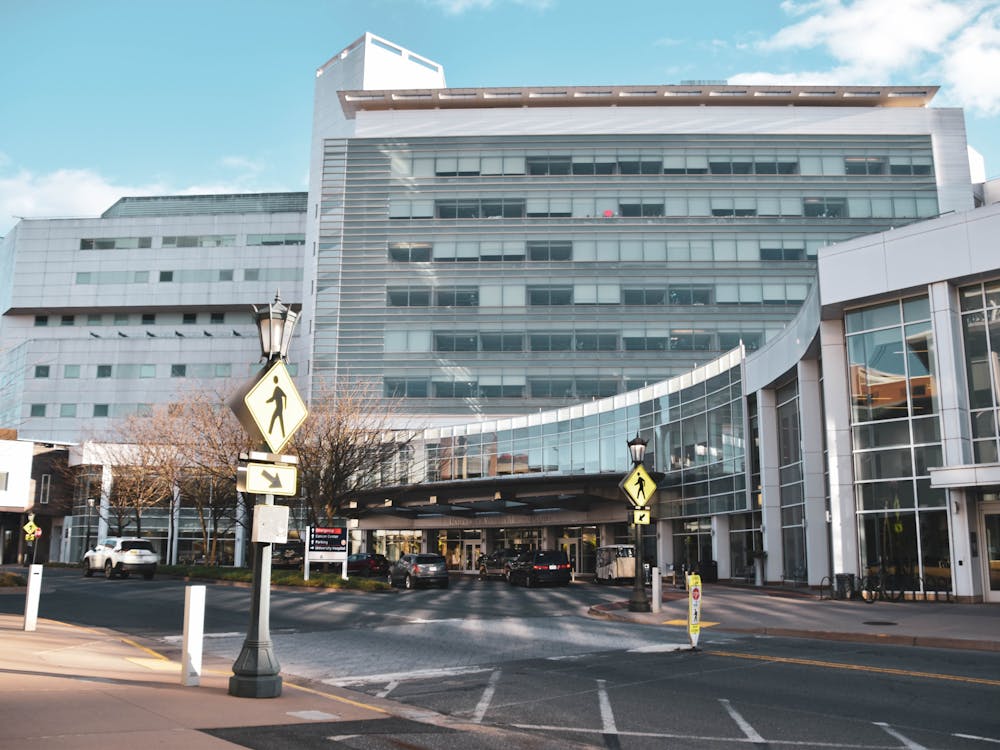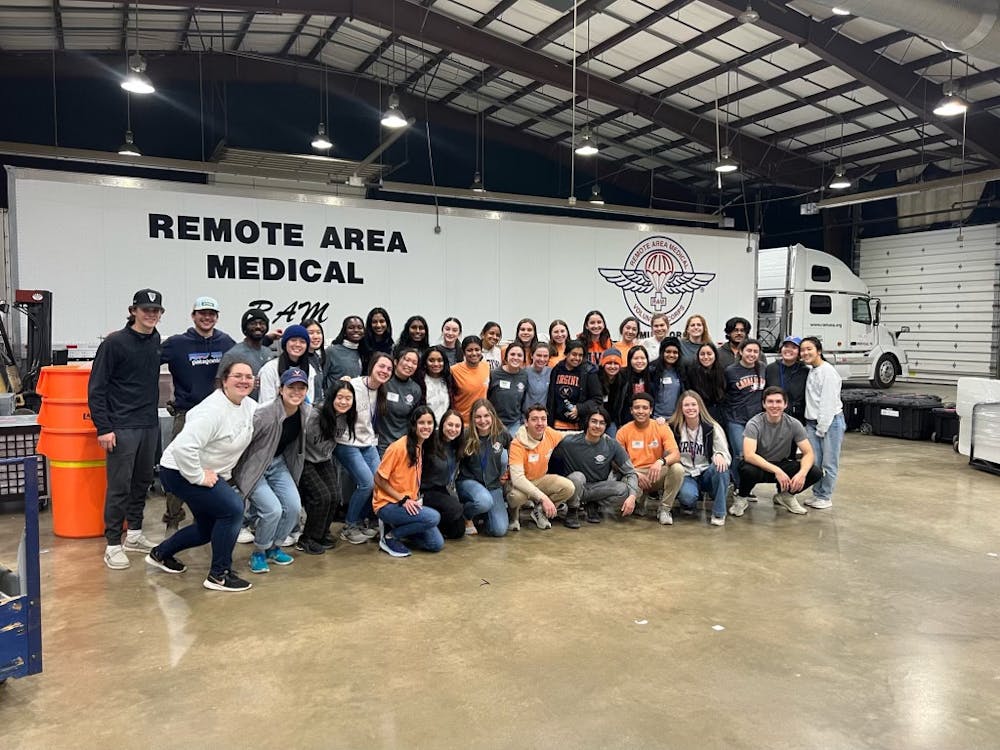Madison House hospital volunteer shifts and late-night study sessions at Clemons Library are typical elements of a pre-health student’s life at the University. However, COVID-19 has restricted access to the key professional and social experiences that define the pre-health journey at the University. Although shadowing opportunities and clinical volunteering experiences are scarce, many University premed students have adapted to the current climate and have pursued their passion for medicine in unique ways.
Third-year College student Sophie Condron has faced many obstacles during her premed experience as a result of the pandemic. However, her adaptability and resilience during the transition has provided a unique trajectory which highlights her dedication to the field.
Condron starts the day early in the morning, attends her online classes typically held in the afternoons and utilizes time in between to complete assignments. She incorporates walks outside throughout her day to provide an escape from the constant flow of Zoom meetings and schoolwork.
“I think it's really important to get exercise and get outside,” Condron said. “It helps me at least, and you can just go for a walk, not super cardio intensive, but just sort of [to clear] my mind and [get] away from my desk.”
Similarly, Eleni Fafoutis, third-year College student, has faced many challenges to her pre-health journey at the University. Nonetheless, her advice and unique experiences during the pandemic highlight her passion for medicine.
A typical day for Fafoutis includes attending virtual lectures, running office hours as a calculus learning assistant and completing assignments for the day. Similar to Condron, Fafoutis likes to incorporate exercise into her daily routine to ensure a proper balance amidst the rapid and demanding nature of online classes.
The transition to online classes has provided challenges along the way. Condron noted less opportunities to collaborate in person with fellow pre-health students, which she believes is advantageous to the field.
“I definitely miss being physically with people, and I think that the empowerment of working together and collaborating is so important, especially as a premed [student],” Condron said. “When there is a lot of competitive culture, being able to rely on a group of friends to study with and do homework together is very important, and not being able to do that as readily is a little bit frustrating.”
Furthermore, Condron described difficulties in terms of forming meaningful connections with professors because of limited in-person interaction.
“I think it's harder to get to know people when you haven't met them in person before,” Condron said. “You can't take your professors out to lunch anymore [or] stop by their office and talk to them if you [have] questions.”
Since letters of recommendation and meaningful relationships with professors are an essential part to the pre-health application process, Fafoutis recommends that students continue to attend office hours and stay engaged.
“Make sure to go to office hours, put your camera on, participate in class and ask questions … show your face, smile, have a good personality and be yourself,” Fafoutis said.
Kim Sauerwein, director of pre-health and law advising at the University, acknowledged the hardships of online classes when it comes to forming connections with professors. She suggests that students demonstrate engagement in class and during office hours. In particular, she suggests turning on cameras during video calls when possible, planning thoughtful questions to ask professors when appropriate and reaching out to connect with teaching assistants, faculty members and professors.
Although online classes have provided many challenges, the transition has provided students with many tangible skills that will be transferable to their future profession in the medical field. Fafoutis mentioned she has improved her organization skills through this process, which she notes will be indispensable to success in the medical field. Additionally, Condron detailed a renewed sense of adaptability despite the unknown.
“I sometimes wasn't that good about writing things down, and then this year I've become really strict about that because of my course load,” Fafoutis said. “I think that's really helped. Organization is a big key to success in the field.”
Similarly, Sauerwein encourages students to reflect on their personal experiences during the pandemic. She believes this reflective approach to overcoming difficulties will be invaluable to aspiring medical professionals as it could help students to have a better understanding of their future patients’ emotions during tough moments.
“Imagine a patient who has to deal with the ambiguity of a cancer diagnosis,” Sauerwein said. “Paying attention to the ways that you're dealing with this ambiguity right now can help you be a better doctor in the future when you're helping that patient with ambiguity.”
In addition to the intrapersonal challenges brought about by COVID-19, the pandemic has also limited many clinical experiences — which are opportunities to allow students to interact with patients or healthcare providers so they can develop a better understanding of the field. They are crucial for admissions to many pre-professional programs but have been limited as many hospitals and institutions have restricted access due to the pandemic.
While many students faced an abrupt pause to their clinical experiences, Condron continued her service with the Charlottesville Albemarle County Rescue Squad during the pandemic. She mentioned that the station took on more precautions during the time to ensure the safety of volunteers and patients including increased use of personal protective equipment. Additionally, this year, she began training for her position as a peer health educator through the Office of Health Promotion and Wellbeing.
“It's definitely a different time, but, of course, now it seems sort of normal because that's what we've been doing for so long,” Condron said. “At the rescue squad it was a very fast reaction to the pandemic.”
On the other hand, Faufoutis’ clinical experiences have been halted due to ongoing precautions. Prior to the pandemic, she served as a Madison House volunteer in the Acute Pediatrics Department of U.Va. Health, and she was in training to become an Emergency Department scribe, alongside her roles in the Honor Committee, American Medical Students Association and a new contracted independent organization All Girl’s STEM Society. But with the transition to virtual learning in March of 2020, while the University scribe program continued to prepare her for the position via an online format, the program was later halted so she never carried out her duties. Madison House volunteering similarly paused for the foreseeable future.
Similar to Fafoutis, many pre-health students are facing an abrupt end to previous clinical experiences and are struggling to find opportunities to become involved in clinical settings. Sauerwein notes that the pre-health advisors have compiled a list of educational, clinical, volunteer and research opportunities that students can take advantage of to help build their resumes.
Sauerwein states that students who are not applying to medical school in the near future — namely first- and second-year students — should consider certifications for hands-on clinical experiences such as certified nursing assistants or EMTs. Additionally, she mentioned that many programs in community colleges across the country provide certifications in other healthcare areas that could be beneficial post-COVID-19.
Shadowing experiences, which are opportunities to observe a medical professional’s day in the clinic or hospital, have also been severely limited due to COVID-19-related restrictions in the hospital. According to Sauerwein, virtual shadowing opportunities are available and are likely to be viewed favorably by medical schools, as long as students have in-person shadowing hours from either before or after the pandemic.
Sauerwein encourages students to research the structure of these virtual shadowing opportunities and the validity of organizations that are hosting the programs. She recommends experiences led by healthcare providers and institutions of higher education. Additionally, students can conduct informational interviews to learn more about the daily life of healthcare providers.
“Even if you can't shadow in the healthcare setting, you can do something called an informational interview,” Sauerwein said. “Informational interviews are basically spending time asking a healthcare provider about their day-to-day job, how they got from undergraduate to where they are today and what they do on a daily basis.”
Regardless of the changes to the pre-health track during this time, Sauerwein encourages pre-health students to explore other topics and experiences that may not be directly related to healthcare. She notes that it could open up a new field of interest for many students.
“I feel like there are plenty of students out there who know that they want to go to a health professions program,” Sauerwein said. “That doesn't mean that's the only passion they're allowed to have, and I would say take advantage of opportunities that are presented to you.”
Despite challenges brought about by this semester and pre-health journey in general, Fafoutis recommends students find a support system and seek friends, family members and mentors who can be sources of support during difficult times. She also encourages students to be confident in their path and to avoid self-doubt.
“Don't give up — don't let one thing knock you down,” Faoutis said. “If you believe in yourself, you can do it. Don't let anybody tell you otherwise.”





